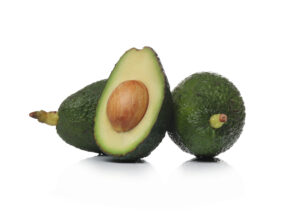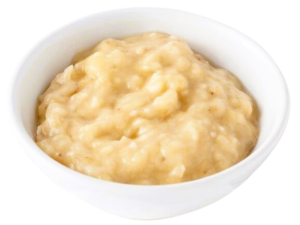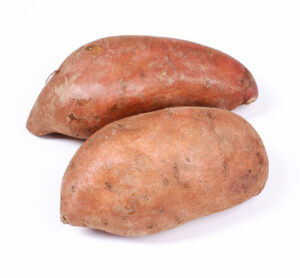Welcoming a new member into your family is an exciting phase of life, and as parents, we always want the best for our little ones. One of the most critical aspects of caring for your 6-month-old baby is providing them with nutritious and age-appropriate meals. Before the age of 6 months babies should be on breast feeding or formula feeding. In this article, we will guide you through 3 wholesome recipes for 6-month-old baby. However, it’s essential to monitor your baby for any signs of allergies when introducing new foods. Start with small portions and gradually increase to ensure their tolerance. Always consult with your pediatrician before making significant changes to your baby’s diet.
Table of Contents
Starting Solids
1. The Importance of Introducing Solids
At six months, your baby’s digestive system is developing, and they are ready to explore beyond breast milk or formula. The introduction of solids is a crucial milestone in their development.
2. Choosing the Right Time
Start when your baby shows signs of readiness, such as sitting up with support and showing interest in what you’re eating. Make sure to consult with you pediatrician for the solid food guidelines.
3. Single-Ingredient Purees:
Begin with single-ingredient purees like rice cereal, mashed bananas, or sweet potatoes. These are gentle on your baby’s stomach and help identify any allergies.
Homemade Baby Food Safety
1. Food Safety Matters
Always wash hands, utensils, and ingredients thoroughly. Baby’s food should be without salt, sugar, or spices.
2. Refrigeration and Storage
It’s better to offer fresh food to babies and in case if you want to store, then keep homemade baby food in airtight containers in the refrigerator for up to 48 hours.
Here are the 3 Recipes for 6-month-old Baby
1. Avocado Mash
- Ingredients:
- 1 ripe avocado
- Instructions:
- Cut the avocado into two pieces and scoop the flesh with a spoon.
- Mash the avocado until it’s smooth and creamy.
- Serve a small spoonful to your baby


Benefits of Avocado for Babies
Avocado, often referred to as “nature’s butter,” is a versatile and nutritious fruit that has gained immense popularity among adults. However, its benefits extend beyond the adult palate. Avocado is also an excellent choice for introducing recipes for 6-month-old Baby. Incorporating avocados into your baby’s diet can be a smart and delicious choice. The benefits, from promoting healthy growth to aiding digestion, are numerous. However, it’s essential to be mindful of potential allergies and to introduce avocados alongside a variety of other foods for a well-rounded diet.
1. Rich in Healthy Fats
Avocado is a treasure trove of healthy fats, primarily monounsaturated fats. These fats are crucial for brain development in infants and are easily digestible.
2. Nutrient-Dense
Avocado is packed with essential nutrients, including vitamins E, C, B6, and folate, which are vital for a baby’s growth and immune system.
3. Gentle on the Stomach
Avocado is soft, creamy, and easy for babies to digest, making it an ideal choice for their first foods. It’s less likely to cause allergies compared to other solids.
4. Natural Fiber
The fruit contains natural dietary fiber that helps regulate a baby’s bowel movements, preventing constipation.
5. High in Calcium
Avocado is a good source of calcium, a mineral essential for the development of strong bones and teeth in growing infants.
6. Choline Content
Choline, found in avocados, plays a significant role in brain development and memory function in babies.
7. Promotes Healthy Vision
The fruit’s high content of lutein and zeaxanthin contributes to healthy vision, which is crucial during a baby’s formative years.
9. Boosts Immunity
Avocado’s rich vitamin C content helps bolster a baby’s immune system, providing protection against illnesses.
10. Skin Nourishment
The healthy fats in avocados contribute to soft, supple skin in infants, reducing the likelihood of skin issues.
11. Healthy Calories
For babies who need to gain weight, avocados offer a calorie-rich option without resorting to processed or unhealthy foods.
2. Mashed Banana and Milk
- Ingredients:
- 1 ripe banana
- Expressed breast milk or formula milk
- Instructions:
- Mash the banana
- Add formula milk or breast milk to achieve the desired consistency.
- Feed your baby this nutritious puree.


Benefits of Banana for Babies
Bananas, often referred to as nature’s perfect food, have gained popularity as one of the first solid foods for babies. Their natural sweetness, soft texture, and numerous health benefits make them an excellent choice for introducing solids to your little one. We will explore the various benefits of bananas for babies and why they should be a staple in recipes for 6-month-old baby. Incorporating bananas into your baby’s diet can offer a wide range of benefits, from supporting growth and development to aiding in digestion and boosting immunity. Their natural sweetness and ease of preparation make them a parent’s best friend when it comes to introducing solid foods to infants.
1. Vitamins
Bananas are rich in vitamins, including vitamin C, vitamin B6, and folate. Vitamin C boosts the immune system, vitamin B6 supports brain development, and folate is essential for cell division.
2. Minerals
They are a good source of essential minerals like potassium, which helps maintain proper heart and muscle function. Potassium is especially important for preventing muscle cramps in active babies.
3. Easy to Digest
One of the primary concerns when introducing solid foods to babies is their ability to digest them. Bananas are naturally easy to digest due to their smooth texture and gentle fiber content. This makes them an ideal choice for babies who are transitioning to solids.
4. Provides Energy
Bananas are loaded with carbohydrates, making them an excellent source of energy for growing babies. The natural sugars in bananas provide a quick energy boost without the need for artificial sweeteners.
6. Promotes Healthy Bowel Movements
Constipation can be a common issue for infants, but bananas can help alleviate this problem. The dietary fiber in bananas promotes regular bowel movements, keeping your baby’s digestive system healthy.
7. Supports Weight Gain
Bananas are calorie-dense, which is beneficial for babies who need to gain weight. If your pediatrician has expressed concerns about your baby’s weight, incorporating bananas into their diet can be a healthy way to help them grow.
8. Enhances Brain Development
Bananas contain nutrients like vitamin B6, which play a vital role in brain development. This vitamin aids in the production of neurotransmitters, promoting healthy cognitive function in babies.
9. Natural Sweetness
Many parents worry about introducing sugary foods to their babies. Bananas offer a naturally sweet taste that babies often love, making them an attractive option for introducing new flavors.
10. Boosts Immunity
The vitamin C content in bananas helps strengthen your baby’s immune system, reducing the likelihood of illness.
11. Versatility in Preparation
Bananas can be prepared in various ways for your baby, from mashed to pureed and even as an ingredient in homemade baby food recipes for 6-month-old baby. Their versatility allows you to adapt them to your baby’s preferences and developmental stage.
3. Sweet Potato Puree
- Ingredients:
- 1 small sweet potato
- Instructions:
- Peel, chop, and steam the sweet potato until tender.
- Mash or blend it until it’s smooth and free from lumps.
- Serve a small portion to your baby.


Sweet Potato Benefits
Incorporating sweet potatoes into recipes for 6-month-old baby can provide a wide range of health benefits while introducing them to delicious and nutritious foods.
The Nutritional Powerhouse
Sweet potatoes are rich in essential vitamins and minerals that play a pivotal role in your baby’s growth and development.
Vitamin A: The Vision Booster
One of the standout features of sweet potatoes is their abundant vitamin A content. Vitamin A is essential for good vision and helps prevent vision problems in babies. It is particularly important during the early stages of life when your baby’s eyes are rapidly developing.
Vitamin C: The Immune Warrior
Sweet potatoes are also packed with vitamin C, which acts as a natural immune booster. A strong immune system is crucial for your baby’s ability to fight off infections and illnesses. Including sweet potatoes in their diet can help keep those pesky colds at bay.
Potassium: For Healthy Muscles and Nerves
Potassium, found in sweet potatoes, is essential for maintaining proper muscle and nerve function. It ensures that your baby’s muscles and nerves develop and function optimally. As your baby starts to explore the world around them, strong muscles and nerves are vital.
Beta-Carotene: Beyond Vision
Beta-carotene, present in sweet potatoes, not only benefits vision but also contributes to healthy skin. It can help prevent skin conditions and keep your baby’s complexion radiant and free from issues. A healthy, glowing skin is a sign of overall well-being.
Digestive Health
Sweet potatoes are an excellent source of dietary fiber, which aids in healthy digestion. It can prevent constipation, a common issue when babies start transitioning to solid foods, and promote regular bowel movements.
Sustained Energy
As your baby becomes more active, they require sustained energy throughout the day. Sweet potatoes come to the rescue with their complex carbohydrates, providing a steady release of energy. This ensures your little one has the stamina they need to explore and play.
Natural Sweetness
Babies often have a sweet tooth, and sweet potatoes have a naturally sweet taste that they find appealing. This can make it easier to introduce them to new foods and flavors. Sweet potatoes can be your secret weapon in expanding your baby’s palate.
Easy to Prepare
Sweet potatoes are incredibly versatile and easy to incorporate in recipes for 6-month-old baby. From purees to mashes to baked slices, there are numerous ways to incorporate them into your baby’s diet. Whether you’re a culinary enthusiast or a busy parent, sweet potatoes fit seamlessly into your meal prep routine.
Precautions and Allergies
1. Allergic Reactions
Always monitor for signs of allergies when introducing new recipes for 6-month-old baby
2. Moderation is Key
As with any food, moderation is crucial. We need to make sure for a balanced diet of babies.
FAQs
1. When should I start giving solids to my baby?
Start around 6 months when your baby shows signs of readiness and always consult your pediatrician before starting with solids.
2. Are homemade baby foods better than store-bought options?
Homemade baby foods allow you to control ingredients and freshness, often making them a healthier choice.
3. Can I introduce allergenic foods like peanuts?
Consult your pediatrician for guidance on introducing allergenic foods safely.
4. How can I ensure that my baby is having a well-balanced diet?
Offer a variety of foods in recipes for 6-month-old baby, and if you have concerns, consult your pediatrician or a registered dietitian.
5. What do I do if my baby refuses certain foods?
Be patient and keep preparing recipes for 6-month-old baby. It may take multiple tries for them to accept new tastes and textures. Remember, your baby’s nutrition is a journey, and these recipes are just the beginning. Enjoy this special time with your little one as they explore the world of flavors and textures.
- Image by Racool_studio on Freepik ↩︎
- Image by krakenimages.com on Freepik ↩︎
- Image by Racool_studio on Freepik ↩︎
- Image by Freepik ↩︎
Featured image: Image by Freepik